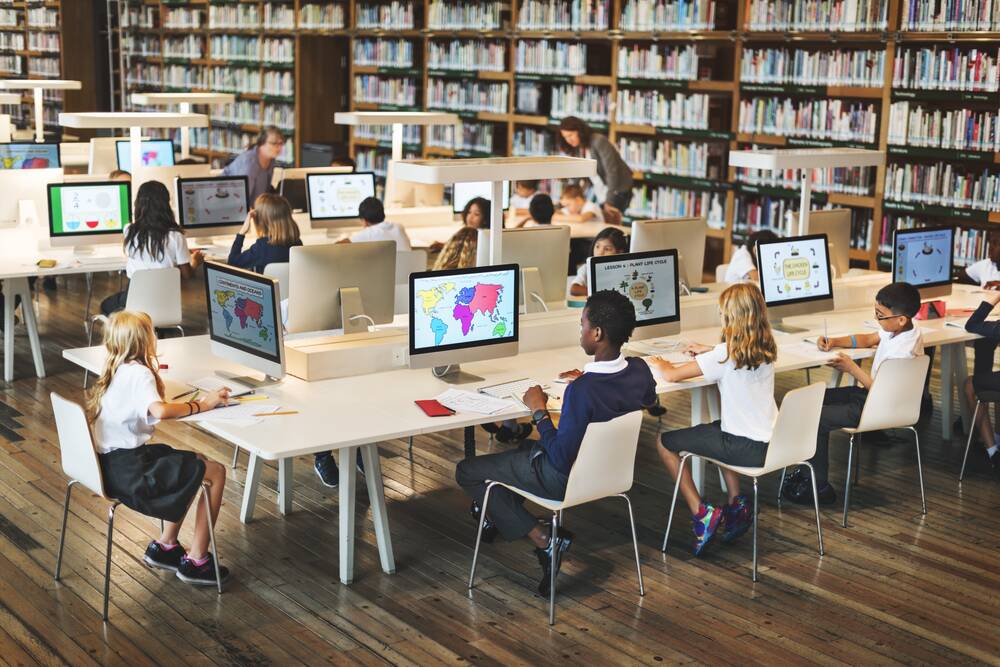Unpacking the growing need for Australians to build digital literacy skills

This is branded content.
It's no secret that Australia's overall digital inclusion rates are low when compared to the rest of the western world.
As the NBN rollout has connected millions of Aussies living in rural communities, these lower rates of digital accessibility can no longer be accredited to a lack of infrastructure.
The most pressing obstacle impeding many modern Australians from being connected to the rest of the world today is our lack of awareness surrounding digital literacy.
Citizens who are digitally literate will be able to source, absorb, and critically analyse information presented to them through digital channels, including social media platforms, and online publications.
Many of Australia's most pressing concerns, including matters of national security, educational reforms, and catering to an aging population, can all be mitigated through the development and implementation of digital literacy skills-building initiatives.
Here's an overview of how we can stand to gain from investing in digital literacy.
Promoting intuitive practices for ensuring cyber safety
There are some cybersecurity practices that should ideally be utilised by all homes and businesses, these being using a VPN service, and equipping yourself with an internet security package.
Despite these two practices demonstrating solid results when it comes to fighting against cyber-attacks, Australians are still falling victim to digital fraud, with the Australian Cyber Security Centre (ACSC) recording just under 60,000 reports of cybercrime from June 2019 to July 2020.
Cases of digital fraud have also been on the rise since Australia's first COVID-19 outbreak in late March of 2020, most likely due to an increase in online shopping.
Cybersecurity experts assert that families and businesses must be proactive about eSafety. The best methods of keeping your household and organisation safe are by generally practising caution online, researching any eCommerce platforms before making purchases, and ensuring that all your user and device data stays hidden behind data encryption services, such as VPNs and malware protection software.
Higher VPN use nationwide may also help to bolster our national internet freedom ranking, as VPN use will ensure Australians have greater access to content online.
Supporting older Australians adapt to rapidly digitising spaces
As the COVID-19 pandemic continues to change the face of Australian industry, so too are the public and healthcare sectors being rapidly altered by the nation's growing need for COVIDSafe practices.
Whilst these new practices can be of great benefit to the general public, they come with added concerns of ensuring that older Australians are still able to access all the resources and services that they may need in a remote capacity.
The federal government has responded to these concerns by launching their Be Connected initiative and website, packed with resources for senior citizens and their families.
The primary aim of the Be Connected initiative is simply to ensure that older Australians feel comfortable emailing, using online banking platforms, and accessing their MyGov account.
Alongside this, regional library services and local councils across the country have been partnering up to offer digital literacy workshops specifically geared towards Australians over the age of 50.
In the midst of the pandemic, however, these in-person resources have become more important than ever before, as older Australians find themselves isolated and without consistent access to technological support in lockdown.
This stark reality begs the question: should we have digital literacy workshops available for Australians of all ages?
Providing younger generations with a well-rounded perception of the internet
Although millennials and younger generations have grown up with the internet, it shouldn't by any means be assumed that children are more aware of the risks they may face when surfing the web.
Similarly, with misinformation and 'fake news' being rampant both in the digital sphere as well as in traditional news media, it's growing imperative that younger Australians practice critical thinking and have opportunities during secondary education to analyse media content in all its forms.
There has been extensive speculation about whether or not digital literacy will be added to state English curriculums across the country, to cater to schools that don't offer the innovative and emerging Digital Technologies subject, developed with the intent of.
In any case, the Murdoch Royal Commission must be considered a foundational step upon which we can continue developing frameworks for building digital media literacy skills.
Reform in our English curriculums to include both digital media analysis as well as critical thinking skills in regards to assessing general information found online can help ensure our kids stay well-informed as well as safe from identity theft, phishing attacks, and the plethora of other insidious threats that plague the digital sphere.
~
As Australia bounces back from the ongoing COVID-19 pandemic, we can continue to prioritise boosting our digital literacy skills through community workshops and educational reform.
In doing so, we will undoubtedly ensure the safety and support of the agency of Australians of all ages.


